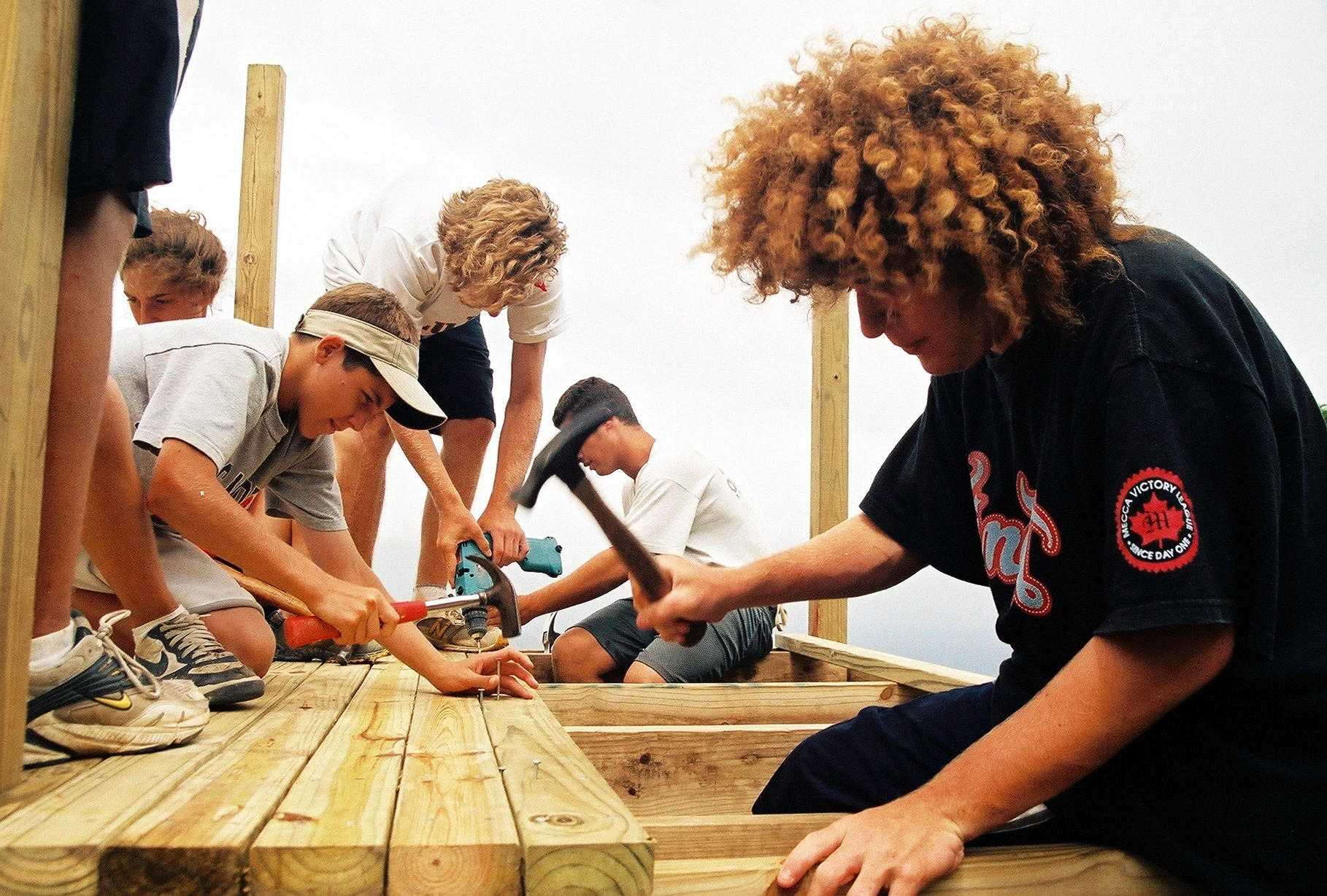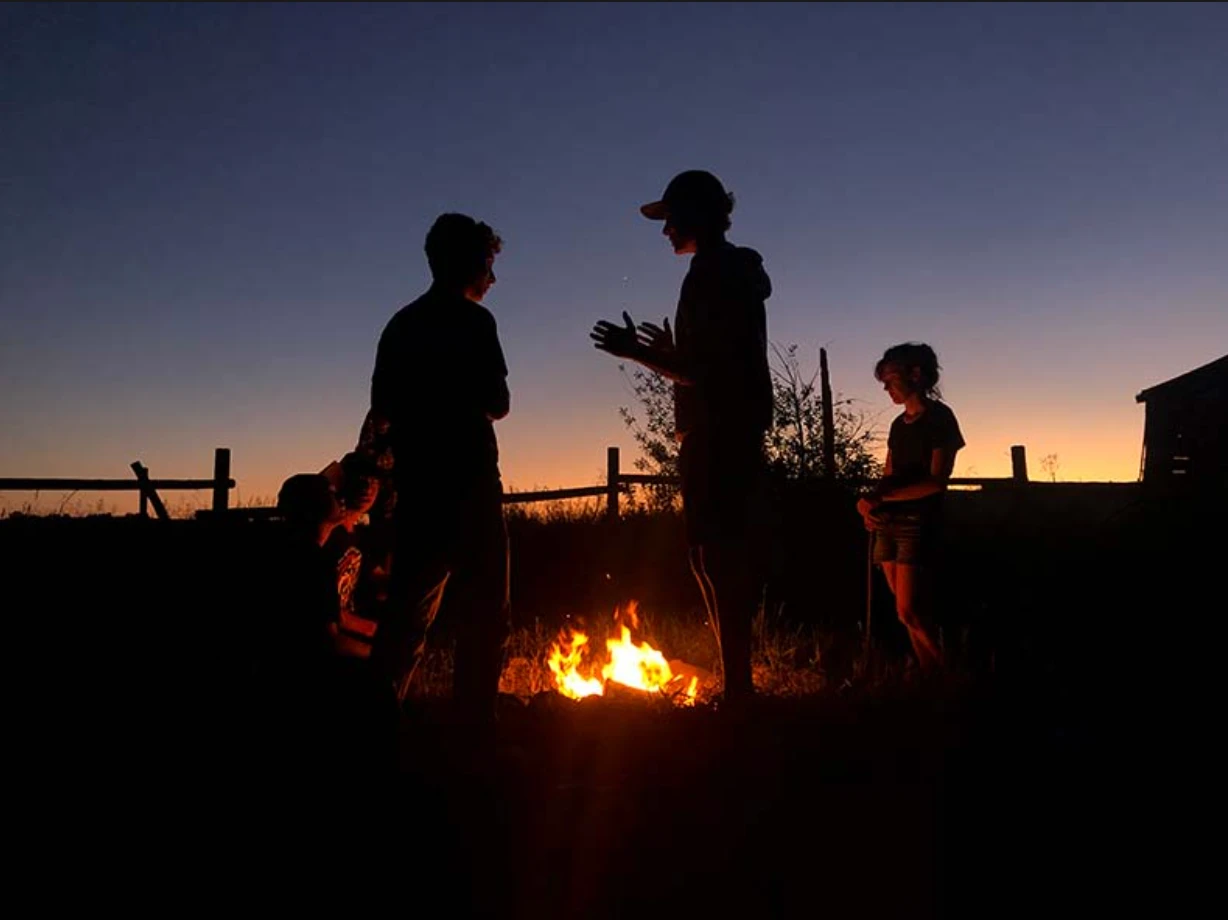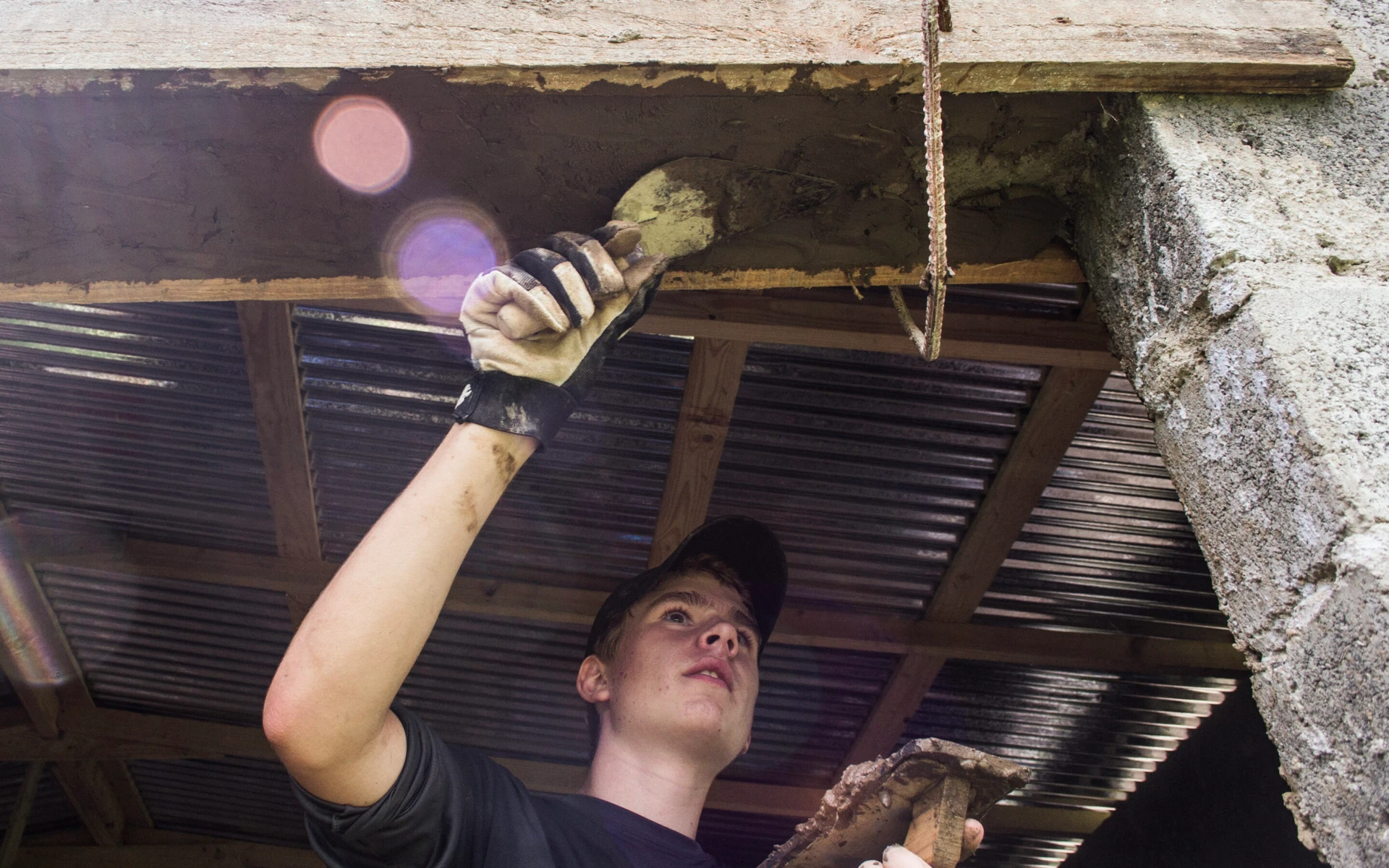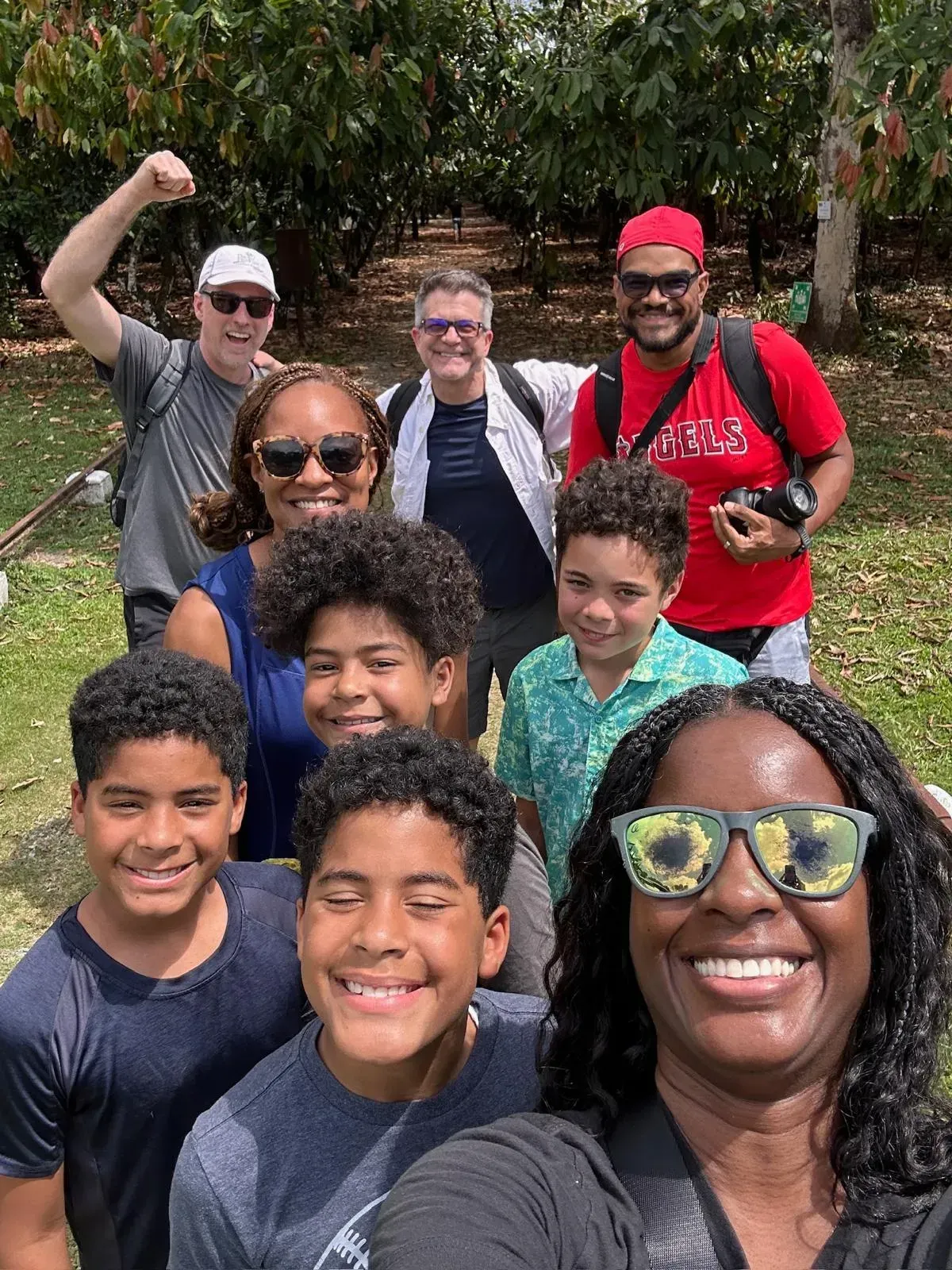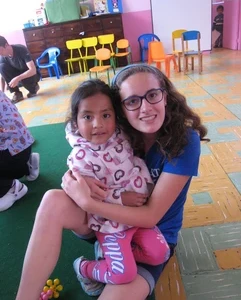 Lizzie Edwards, a high school student and teen volunteer from Portland, Oregon, recently wrapped up a summer service adventure with VISIONS Ecuador & Galapagos. It was her second VISIONS summer, and a world away from her first program in Cambodia. Next up? Myanmar for 2016.
Lizzie Edwards, a high school student and teen volunteer from Portland, Oregon, recently wrapped up a summer service adventure with VISIONS Ecuador & Galapagos. It was her second VISIONS summer, and a world away from her first program in Cambodia. Next up? Myanmar for 2016.
Lizzie explains the difference between the two cultures she has experienced so far, and yet the similarities that also existed within the overall experience. She also talks about the people she met, work projects she took part in, her favorite excursions, and more.
What stands out most about your VISIONS summer experiences in Cambodia and Ecuador?
So much stands out! What they have in common: they both had an emphasis on giving back to the communities. Rather than just visiting a place, we got to do projects that allowed us to thank the communities that we lived in. Also, we got to reflect; we had circle meetings every other night where we talked about our experiences and reflected on what we had seen and done. It’s interesting to hear others’ perspectives.
Does your outlook on the world seem different now that you’re back home?
Yes, it really does. Before my first trip, I didn’t even know what a non-governmental organization (NGO) was. I didn’t think about the world in ways I do now. The only thing I thought about was the world I was living in. I got caught up in my own life and forgot there was more to the world than Portland. But my VISIONS trips got me interested in other cultures and in NGO work. I found that I really enjoy learning about the world and global issues. Before, I was in my own bubble. VISIONS helped burst that bubble. It’s made me excited about the future.
What was it like doing multiple VISIONS programs?
I liked going on two separate trips, since the cultures of Cambodia and Ecuador are so different from each other. Going to both allowed me to learn about both cultures, and I had unique experiences in each.
What kind of service projects did you focus on in both communities?
In Cambodia, most of our projects were in partnerships with different NGOs. With the Salt Academy, we built a shade structure for the girls and helped run a summer camp. For Coconut Water, we created educational films with primary school-aged Cambodian children to promote recycling. Another day we cleaned up garbage on the soccer field. No matter how much garbage we picked up, it felt like no progress was being made, but at the same time it was helping. That experience stuck with me; there’s always so much that needs to be done, but even doing little things can be helpful.
While in Ecuador, a lot of our projects were based in the town of Sucre where we lived. There were painting projects at the school, we built a tourist kiosk to help increase tourism in the town. A lot of our Ecuador projects had to do with cement, while in Cambodia the emphasis was on woodworking. It depends on what is needed by community. While the types of projects were different, the core values of the trips were similar.
What were your favorite excursions outside of work?
Visiting Angkor Wat in Cambodia was an amazing experience. I saw history right before my eyes in every single wat. As we climbed wats, I felt a sense a wonder that people could build something so beautiful and incredible. Also there, we went biking. At first, we weren’t so excited about that, but we ended up having a great time as we biked to the different wats.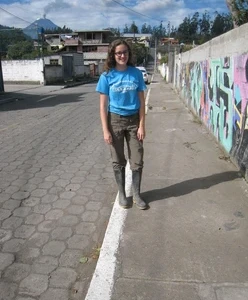
Another interesting experience was the boat ride from Battambang to Siem Reap. It was a small boat and passing so many houses on stilts was a really memorable experience. It was eye-opening to see such extreme poverty, and it was one of the things that got me interested in NGO work. It made me realize that I was lucky compared to many people, and it made me more appreciative of the opportunities in my life.
In Ecuador, my favorite excursion was the daylong homestay. I spent the day with a local family that ran a restaurant. They were very welcoming and friendly, and their kids were so sweet. I learned a lot about what it’s like to run a restaurant, and also about my homestay family and their lives. I learned a lot about the kids as they told me all about themselves. I enjoyed playing games with the kids in the park near their house.
What were the people like, both those in your group and those in the community?
You could tell that the other kids on my trips wanted to be there. They were extremely motivated to learn about the world around them. You really get to know people when you spend a month with them. It’s a pretty cool experience, because you get to meet people who are very different from you, from all over the country and world. It can be difficult sometimes, because we’re together all the time, but you become very close to your group.
The Ecuadorians were wonderful. At first, when we walked down the streets, people were really curious about us, but after a while, it just became natural. We felt welcomed in both communities I visited. The people we had an opportunity to meet were very friendly. We played soccer and got to know some of the teens through our language exchanges. In Ecuador, we asked pretty basic questions in Spanish, like “If you could go anywhere in the world, where would you go?” to more difficult ones like, “What’s your opinion on climate change.” We got to practice our Spanish and they got to practice their English.
What kind of things did you take away from your VISIONS experience in Ecuador?
My Spanish got much better. I kept a diary in Spanish when I was there. Whenever I came to a word I didn’t know, I’d check a Spanish dictionary. I also learned a lot about what life is like in Ecuador and about the people. It definitely opened my mind to some new perspectives and I think I have better understanding of the culture. Right now, in my History of the Americas class, we’re studying the history of South America, and it’s interesting to see how the actions of the past have influenced a place I’ve been to. I also gained more confidence this trip, in the skills needed for my work projects and in myself. In circle, we reflected one night about ourselves and learned my strengths, as well as some things I’d like to work on.
What do you hope to be doing 10 years from now?
I hope to work with an NGO. I’m not sure what sector yet, but right now I’m interested in either education, health, or human rights. I’m passionate about problems on a global scale, and I want to be able to make a difference. I also feel like other places have so much to teach me.



